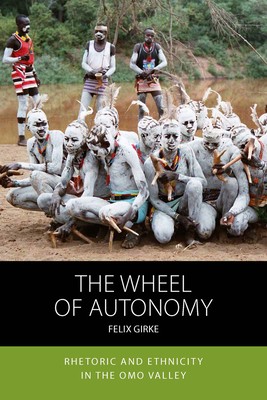
- We will send in 10–14 business days.
- Author: Felix Girke
- Publisher: Berghahn Books
- ISBN-10: 1785339508
- ISBN-13: 9781785339509
- Format: 15.8 x 23.1 x 2.3 cm, hardcover
- Language: English
- SAVE -10% with code: EXTRA
Reviews
Description
How do the Kara, a small population residing on the eastern bank of the Omo River in southern Ethiopia, manage to be neither annexed nor exterminated by any of the larger groups that surround them? Through the theoretical lens of rhetoric, this book offers an interactionalist analysis of how the Kara negotiate ethnic and non-ethnic differences among themselves, the relations with their various neighbors, and eventually their integration in the Ethiopian state. The model of the "Wheel of Autonomy" captures the interplay of distinction, agency and autonomy that drives these dynamics and offers an innovative perspective on social relations.
EXTRA 10 % discount with code: EXTRA
The promotion ends in 20d.04:34:34
The discount code is valid when purchasing from 10 €. Discounts do not stack.
- Author: Felix Girke
- Publisher: Berghahn Books
- ISBN-10: 1785339508
- ISBN-13: 9781785339509
- Format: 15.8 x 23.1 x 2.3 cm, hardcover
- Language: English English
How do the Kara, a small population residing on the eastern bank of the Omo River in southern Ethiopia, manage to be neither annexed nor exterminated by any of the larger groups that surround them? Through the theoretical lens of rhetoric, this book offers an interactionalist analysis of how the Kara negotiate ethnic and non-ethnic differences among themselves, the relations with their various neighbors, and eventually their integration in the Ethiopian state. The model of the "Wheel of Autonomy" captures the interplay of distinction, agency and autonomy that drives these dynamics and offers an innovative perspective on social relations.


Reviews